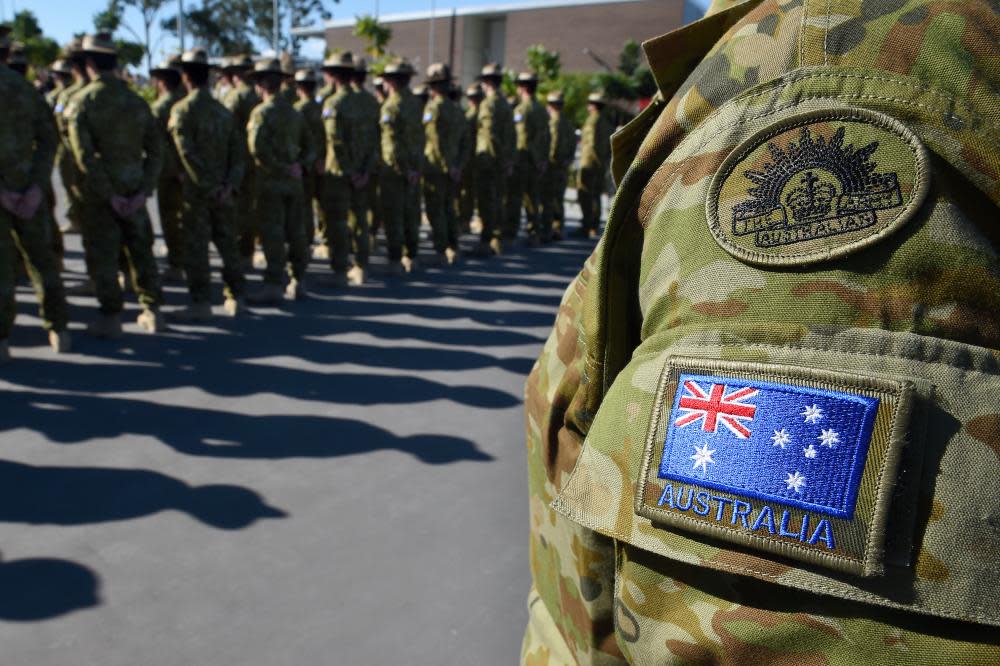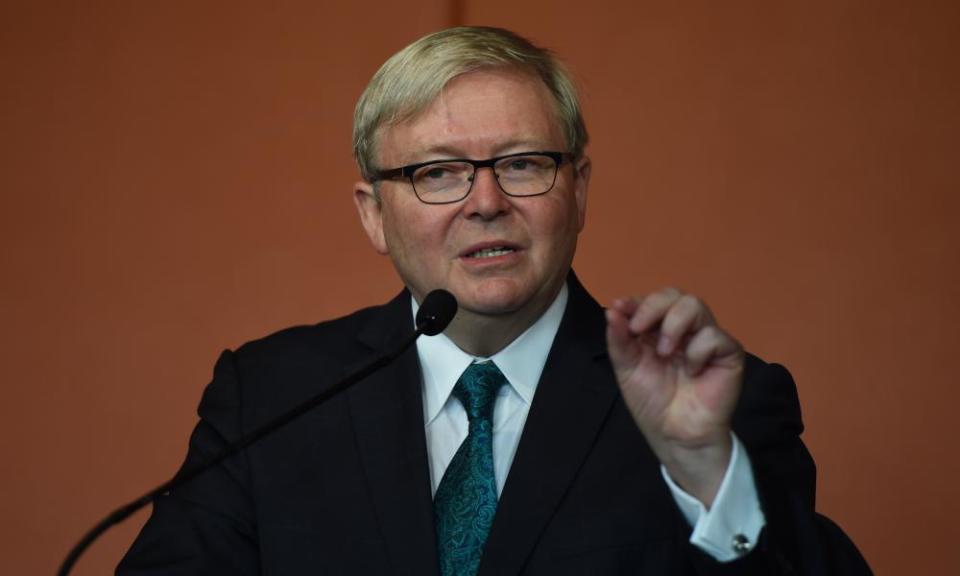Australia urged to give visas to Iraqi translators who worked for ADF

Iraqi translators whose lives are at risk because of their work for the Australian defence force should be offered visas to Australia because it is “the right thing to do”, former prime minister Kevin Rudd has said.
His comments follow reports in Guardian Australia that about 60 translators who have been assisting the Australian military in its fight against Isis said they were effectively being prevented from applying for visas to move to Australia.
The group said they did not want any special consideration, just the ability to apply for visas quickly and without having to travel overseas. They said their work with the ADF had placed them in danger as Iraq’s security situation deteriorated, and those who had worked with foreign forces could be targets for Shia militia.
“Early in our government, we decided that any Iraqi civilian who worked directly for the ADF as a military aide or interpreter should be offered a visa to migrate to Australia,” Rudd said.
Related: Iraqi interpreters who served beside Australians say they're prevented from applying for visas
“I was totally opposed to the war, launched under John Howard, and I did not want to see any retribution against these civilians after our forces withdrew. We wanted to avoid a repeat of what happened in Vietnam after 1975. This was the right thing to do. It stands in stark contrast to the position of the [current] government.”
In 2008 the then Labor government adopted a new visa policy to enable up to 600 “locally engaged employees” and their families, who were at risk because of their engagement with the Australian government, to resettle in Australia as humanitarian entrants.
That legislation still allows for interpreters and other “locally engaged employees” to apply for visas, but more than a dozen interpreters have told Guardian Australia it is impossible in practice.
Australia’s embassy in Baghdad does not accept visa applications and some interpreters say they have been told they must travel in person to Jordan or Lebanon to apply, which would entail a physical risk and financial burden to them and their families.
Others have been told they can apply remotely but have told Guardian Australia the cost is prohibitive, running to several thousands of dollars.
In a petition sent to the defence minister and other cabinet ministers, the interpreters asked that they be allowed to apply at Australia’s embassy in Baghdad.
“We do not seek any special privileges or fast-tracking, just a fair go in getting a chance to have our applications lodged locally, our cases heard and considered.”
A spokesman for the Australian defence department said interpreters could apply for visas if a government minister certified they were “at significant risk of harm as a result of their employment or support of Australia’s mission”.

“Once eligibility is established, they may apply for a humanitarian visa. Each application is considered on its individual merit using current and comprehensive information on circumstances in the relevant country.”
The security situation in Iraq continues to deteriorate with roiling protests met with violent retribution.
At least 400 people have died since protesters first took to the streets at the start of October to denounce corruption, unemployment, failing public services and Iran’s heavy influence on the country’s politics.
Independent MP and former army officer Andrew Wilkie told Guardian Australia it was “outrageous that Iraqis who have worked with Australian forces in Iraq are not being granted visas to move to Australia and instead being hung out to dry”.
Related: Birth of boy sparks renewed calls to rescue Australians in Syria's squalid al-Hawl camp
“Australian forces relied heavily on assistance from Iraqis, and to deny them visas is a cruel betrayal. Any sensible person would easily understand that these Iraqis, and their families, face a lifetime of grave risks for once being associated with Australian forces and it’s a very low act to not give them our protection.”
Former Australian army captain Jason Scanes has battled for six years for a visa for his interpreter from Afghanistan. Scanes has established Forsaken Fighters Australia, a charity dedicated to assisting veterans and “mission essential personnel”, such as interpreters, who supported Australian forces and are seeking protection.
Scanes said Australia had a “moral obligation” to the people who were put at serious risk of harm by assisting Australian military missions overseas. He said soldiers formed tight bonds with those they served alongside in conflict.
“If I go back to my time in Afghanistan, the interpreters that were assigned to us from day one, we developed a close bond of trust with, they lived on our base, they wore our combat uniform and we were responsible for each other. These interpreters are our mates and in the military and indeed Australia, there is not much we would not do for a mate.
“These are people, not a piece of equipment you discard when you’re finished.”

 Yahoo News
Yahoo News 
